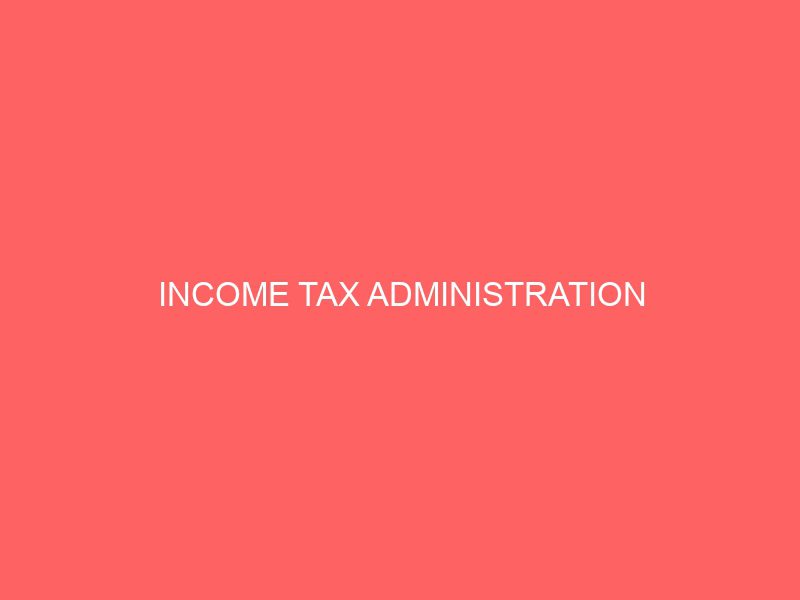Description
INCOME TAX ADMINISTRATION
ABSTRACT
Tax policy administration and implementation have been a great problem to the third world countries, which Nigeria is one. This research work, “income tax administration in Abia State, a critical evaluation of the problems and prospects. Thereafter, suggests ways of minimizing the effects of the following problems. Avoidance and evasion of tax, waiting the taxpayers, initial tax payer compliance, resolution of controversies between tax payer and tax officials and collecting of taxes etc.
CHAPTER ONE
INTRODUCTION
1.1 BACKGROUND OF THE STUDY
The tax system is often identified as one of the most powerful levers available to the government to move their economic state from a pitiable condition to a happier position. According to Anyanwu (1999) taxation can simply be seen as “a compulsory transfer of money from private individuals, institution or groups to the government”. On another note Agolu (2001) says “taxation may be defined as a compulsory levy by the government through its various agencies in the income capital or consumption of its subjects. These levies are made on personal income such as salaries business profits, interest, dividends commission royalties or rests. It may also be levied on capital gains and petroleum profits. All of the above are taxes levied on income”. Income tax is one levied on the income after allowances have been granted what remains taxable.
The questions then arises as how efficient is the administration of income tax in Nigeria and Abia State in particular. This is the questions this research work tries to provide an answer to. It is important to note that during colonial period, income tax administration was placed on the shoulders of colonial masters according to the orders of the governor general. After independence, the government of Nigeria took over administration of taxes, especially, income tax.
Consequently, board of internal revenue were established in the different regions and states of the federation. These states were charged with responsibility of income tax administration.
THE BACKGROUND OF BOARD OF INTERNAL REVENUE
Section 85A of PITD provided for the establishment of a state board of internal revenue to be known as “the state service” to comprise of:
– The executive head of the state board as chairman who shall be a person experienced in taxation and appointed by the governor of the state from within the state service.
– The other members to be nominated on their personal merit by the commissioner in the state responsible for finance.
– The directors and heads of departments within the services
– A director from the state ministry of finance.








Reviews
There are no reviews yet.